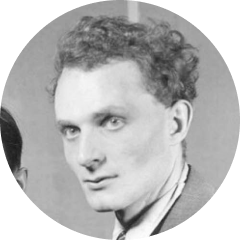Stephen Spender
(1909–95)
Stephen Spender (1909–95), poet and critic, won a reputation with his first collection Poems (F&F, 1933), following an appearance in Michael Roberts’s anthology New Signatures (1932). He cultivated friendships with some of the foremost younger writers of the period, including W. H. Auden, Christopher Isherwood, John Lehmann, and J. R. Ackerley.
For a while in the 1930s Spender joined the Communist Party and went to Spain to serve the Republican cause. With Cyril Connolly he set up the magazine Horizon in 1940. In the post-war years he was to be a visiting professor at a number of American universities, and he undertook trips on behalf of the British Society for Cultural Freedom, the Congress for Cultural Freedom, and PEN. He served too as poetry consultant to the Library of Congress, 1965–6. For fourteen years from 1953 he was co-editor of the magazine Encounter, which – as it was ultimately proven – was from the start the beneficiary of funding from the CIA (just as writers including William Empson had suspected).
Spender’s other works include Vienna (1934), The Destructive Element (1935), Forward from Liberalism (1937), World within World (autobiography, 1951), The Creative Element (1953), Collected Poems (1955), The Struggle of the Modern (1963), The Thirties and After (1978), New Selected Journals 1939–1995, ed. Lara Feigel and John Sutherland with Natasha Spender (2012), and The Temple (novel, 1989). He was instrumental in setting up Index on Censorship in 1971, and worked as Professor of English at University College, London, 1970–5. Appointed CBE, 1962; elected a Companion of Literature by the Royal Society of Literature in 1977; knighted in 1983. See further John Sutherland, Stephen Spender: The Authorized Biography (2004).
